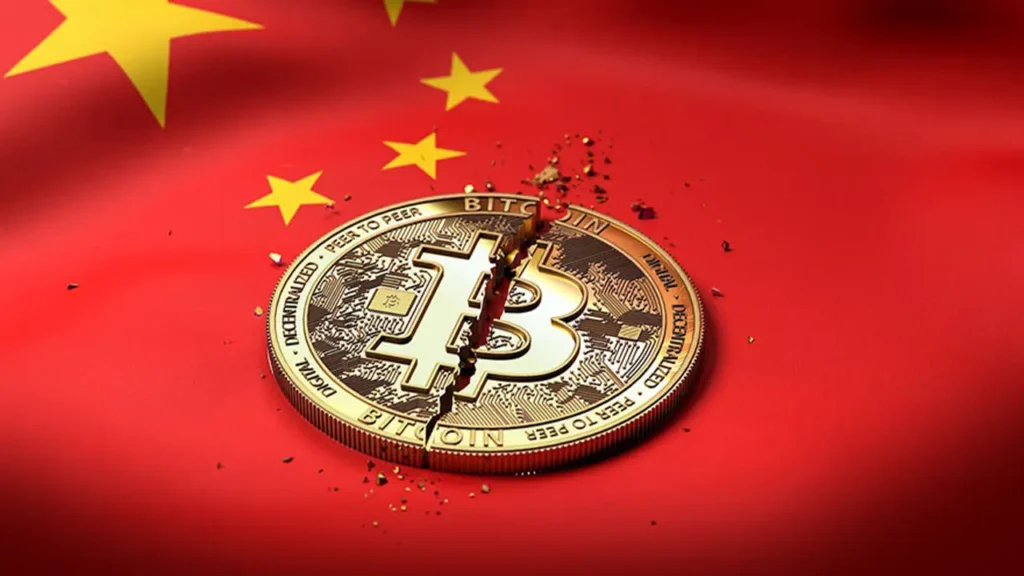- Web
- Feb 20, 2026
Has China really banned crypto? Here’s what’s actually going on
-

- Web Desk
- Aug 04, 2025

BEIJING: Over the past few hours, social media has been buzzing with reports that China has once again banned cryptocurrency. Bold headlines like “China Drops the Hammer: Full Crypto Ban Enforced – Trading & Mining Outlawed” began circulating, fuelling panic and speculation across the digital asset space.
But there’s no real evidence that anything new has happened.
Same rumours, different day?
This isn’t the first time the world has heard “China bans crypto” and it likely won’t be the last. In fact, it’s become something of a running joke within the crypto community. The headlines resurface every few years, usually accompanied by recycled concerns over capital flight, energy use, and government control.
Interestingly, the Reuters link shared in the X post above dates back to 2021, not a recent report. It’s unclear whether this was an oversight by Investing.
The most recent round of noise started when Binance published an article claiming that China had “declared cryptocurrency mining, trading, and all related services illegal” effective May 31, 2025. That triggered a domino effect, with major platforms like Kalshi and First Squawk amplifying the story, giving it more traction than it probably deserved. Kalshi’s post alone racked up nearly 800,000 views.
Below is what currently shows up on YouTube when you search for “China bans crypto”.

No official confirmation
Despite the dramatic claims, experts and insiders have pushed back. Su Zhu, co-founder of the collapsed hedge fund Three Arrows Capital, dismissed the rumour, saying there’s “zero evidence” from his sources in China that any new ban has been imposed. Colin Wu, a well-known Chinese crypto journalist, also confirmed that there have been no fresh restrictions.
Germany consulate in Karachi resumes visa services
According to Wu, while China has placed a series of tough restrictions on crypto over the years, it has never banned individual transactions entirely. Even mining, which was hit hard in 2021, continues quietly in some regions. In fact, China still contributes around 21 percent of the world’s total Bitcoin hashrate.
The history of crypto bans in China
To understand why people are so quick to believe in another ban, it helps to look at China’s history with crypto:
- In 2013, Chinese banks were barred from processing Bitcoin transactions.
- By 2017, the government had shut down local crypto exchanges and banned Initial Coin Offerings (ICOs).
- In 2021, authorities cracked down on crypto mining, citing energy concerns and financial risks.
Each move was painted as final, and yet, crypto has always found a way to survive within, or just outside, China’s borders.
The latest rumour seems to be more of the same, part misunderstanding, part fear-mongering, and part old news rebranded as fresh.
Behind the noise: China’s bigger plan
While it seems like there’s no new crypto ban, China’s long-term strategy around digital assets is no secret. The country is focused on rolling out its central bank digital currency (CBDC), the digital yuan, and doesn’t want decentralised alternatives like Bitcoin or stablecoins to interfere. Many of the restrictions aim to steer public and private financial activity toward state-controlled systems.
Trump-backed World Liberty proposes $1.5b crypto holder, reports say
That said, even with heavy restrictions on the mainland, crypto activity hasn’t vanished. Many investors and companies have shifted operations to friendlier jurisdictions like Hong Kong, where a more regulated, pro-crypto environment is taking shape. The city is now a hub for yuan-pegged stablecoins and other digital asset services catering to Chinese users through legal loopholes.
So, has China banned crypto?
Technically? No, not in any new way.
The government’s stance is strict, but nothing new has been announced officially. Most of the noise is just a rehash of old policies dressed up as breaking news. The crypto world should know by now: when it comes to China, the bans are rarely as sudden, or as absolute, as the headlines and social media make them sound.
In short: don’t panic, do your homework, and always check the source.
Read next: PKR strengthens further against USD in intraday trade




